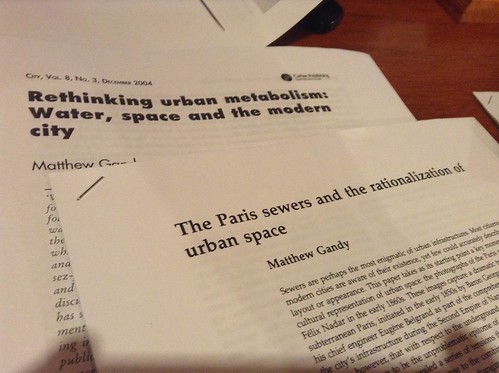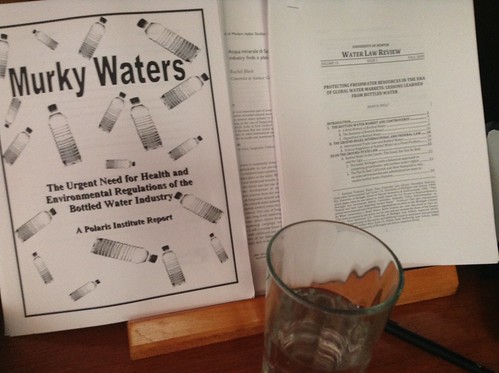Last year I had a conversation with a senior scholar, colleague and good friend of mine at CIDE (Dr. Mauricio Merino Huerta, one of Mexico’s foremost scholars of transparency and corruption). In that conversation, he mentioned how he was examining a research question that was pushing his own intellectual boundaries. When someone who is a senior scholar, experienced, seasoned and very well-published tells you that a research question is pushing his boundaries, you can’t help but admire that academic’s honesty, and question whether you yourself are doing research that pushes your own intellectual boundaries to the maximum.
I will fully admit that doing research on sanitation doesn’t feel like it’s pushing my boundaries too much. I know the literature well, I know where my contribution to the scientific knowledge of wastewater governance resides, and I have a very-well traced research trajectory. It feels relatively easy and natural to study the global politics of sanitation because I know the field so well.
That said, studying water privatization IS in fact pushing my own intellectual boundaries. Doing collaborative research on the water and energy nexus IS pushing my boundaries. I feel like I’m being pushed to the limit intellectually and conceptually because I don’t feel the same degree of comfort. Same with the project I’m doing on climate policy evaluation. I’m very good at policy evaluation and at environmental policy instruments’ theories, but I know that the added complexity of mitigation and adaptation and the cross-scalar dynamics of climate interactions all are pushing me to work longer, think harder and learn.
I’m learning like crazy these days. And that’s because I am cautious about the work I undertake, but I’m daring to push myself beyond my comfort zone. I think there is great value in doing research that pushes your own boundaries. I am also glad that my work is embedded within collaborative relationships with other great scholars. That way, we learn together and move forward our work together.
These past three years have probably been the best of my scholarly life. I look forward to the next stage in my research.



0 Responses
Stay in touch with the conversation, subscribe to the RSS feed for comments on this post.